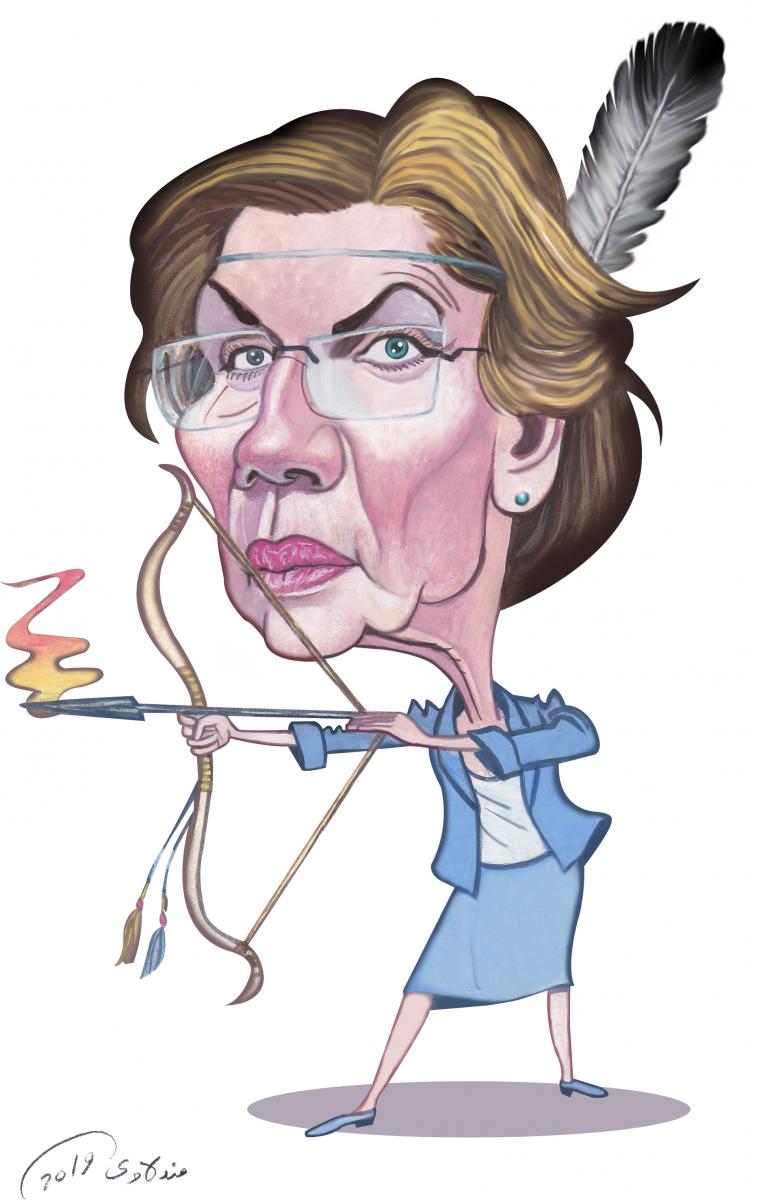
Elizabeth Warren was born in 1949, in Oklahoma, US. Her father worked mainly as a maintenance man and her mother did catalog-order work. At age 16 she became a state debate champion and graduated high school and attended George Washington University, Washington, D.C., though she graduated from the University of Houston (B.S. in speech pathology, 1970) after having married her high-school sweetheart, mathematician Jim Warren, at age 19 and moved to Texas. She was the first member of her family to graduate from college and spent most of her early life on what she referred to as "the ragged edge of the middle class."
After teaching at the University of Texas, University of Michigan, University of Pennsylvania, and Harvard University, Warren, an expert in bankruptcy law, was selected to lead the National Bankruptcy Review Commission in the 1990s. In 1996, she changed her affiliation from Republican to Democratic. Warren has authored 11 books about the economy, the middle class, and personal finance. Her books include two co-written with her daughter, Amelia Warren Tyagi, "The Two-Income Trap: Why Middle-Class Mothers and Fathers Are Going Broke" and "All Your Worth: The Ultimate Lifetime Money Plan."
In 2008, she was appointed by then-Senate Majority Leader Harry Reid (D) to serve as the chair of the Congressional Oversight Panel, created during the economic recession to oversee the Treasury and evaluate market transparency. Warren left the role in 2010 to serve as a special adviser to President Barack Obama on the Consumer Financial Protection Bureau. Her breakout moment came with a September 2011 speech that went viral, in which she argued against the idea that taxing the wealthy is class warfare. Warren won the 2012 U.S. Senate election in Massachusetts with 53 percent of the vote, defeating incumbent Scott Brown (R). She was the first woman to be elected to the U.S. Senate representing Massachusetts. On her website, Warren told her constituents: "I won't just be your senator, I will also be your champion." She quickly gained a reputation for her unforgiving questioning of big banking executives and regulators.
In June 2016, Warren endorsed presumptive Democratic presidential nominee Hillary Clinton. She also went on the attack in her critiques of Republican presidential nominee Donald Trump. “When Donald says he’ll make America great, he means greater for rich guys just like Donald Trump. That’s who Donald Trump is… And you have to watch out for him because he’ll crush you into the dirt.” After the election of Trump to the presidency, Warren became an outspoken critic and the voice of opposition to his administration. She joined the Women’s March for America a day after his inauguration and has opposed many of his policies and has spoken publically about perceived conflicts of interest and misconduct by Trump himself. She also was a vocal opponent of many of the president's cabinet nominees, including Senator Jeff Sessions. In 2018, Warren won re-election by a landslide, taking 60% of the vote. Soon afterward, news broke that she had formed an exploratory committee to run for president in 2020; she confirmed her candidacy in February 2019.
Warren positions herself as a direct contrast to the Trump-led Republican party of the current era and has made steady gains in the national polls. She has released many policy proposals on many topics, but her signature initiative and top priority addresses political corruption, which she sees as the connective tissue linking many social ills. Warren wants to cover tuition at public colleges and eliminate student-loan debt for millions of Americans. Her plan would create a one-time cost of $640 billion to the federal government and ultimately be paid for an “Ultra Millionaire Tax,” an annual 2% tax on the estimated 75,000 families with $50 million or more in wealth. She has publically criticized big tech companies saying that they have “too much power – too much over our economy, our society, and our democracy.” Through the policy, she would “unwind tech mergers that illegally undermine competition.” Pressured to describe how she intended to pay for a "Medicare for all" program to provide free health care for Americans, Warren revealed a $20.5 trillion health care proposal in early November. Under her plan, employers would continue contributing toward overall coverage expenses (though employees would trade in their company insurance for the government one), with additional funds to be raised through an altered income tax policy and the taxing of financial transactions like stock trades. The senator frames the United States’ foreign involvement as an opportunity to defend democracy and question the role of capitalism in exacerbating inequalities worldwide.









